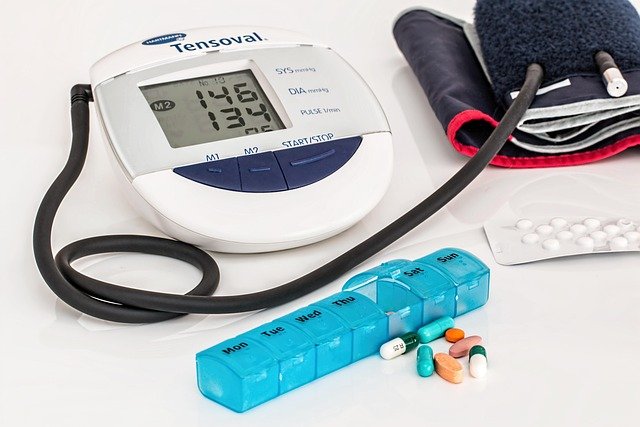Solutions for treating hypertension
Hypertension, commonly known as high blood pressure, is a widespread health concern affecting millions of people worldwide. Left untreated, it can lead to severe complications such as heart disease, stroke, and kidney problems. Fortunately, there are numerous effective solutions available for managing and treating hypertension. This article explores various approaches to control high blood pressure, from lifestyle modifications to medical interventions, providing you with valuable insights to help maintain a healthy blood pressure level.

What are the primary causes of hypertension?
Understanding the root causes of hypertension is crucial for effective treatment. While some risk factors are beyond our control, such as age and family history, many others are lifestyle-related. Common causes include poor diet, lack of physical activity, excessive alcohol consumption, smoking, and chronic stress. Certain medical conditions like kidney disease, thyroid disorders, and sleep apnea can also contribute to hypertension. By identifying and addressing these underlying factors, individuals can take significant steps towards managing their blood pressure effectively.
How can lifestyle changes help control blood pressure?
Lifestyle modifications are often the first line of defense against hypertension and can be remarkably effective. Adopting a heart-healthy diet, rich in fruits, vegetables, whole grains, and lean proteins, while reducing sodium intake, can significantly lower blood pressure. Regular physical activity, aiming for at least 150 minutes of moderate-intensity exercise per week, is another powerful tool. Weight management is crucial, as even a modest weight loss can lead to substantial improvements in blood pressure. Additionally, limiting alcohol consumption, quitting smoking, and implementing stress-reduction techniques like meditation or yoga can contribute to better blood pressure control.
What medications are commonly prescribed for hypertension?
When lifestyle changes alone are insufficient, healthcare providers may recommend medication to manage hypertension. Several classes of drugs are available, each working in different ways to lower blood pressure. These include:
- Diuretics: Help eliminate excess sodium and water from the body.
- ACE inhibitors and ARBs: Relax blood vessels by blocking certain hormones.
- Calcium channel blockers: Relax and widen blood vessels.
- Beta-blockers: Reduce heart rate and the heart’s workload.
- Alpha-blockers: Relax blood vessels by reducing nerve impulses.
The choice of medication depends on various factors, including the severity of hypertension, other health conditions, and potential side effects. Often, a combination of medications may be prescribed for optimal blood pressure control.
What natural remedies can help lower blood pressure?
For those seeking natural approaches to complement traditional treatments, several remedies have shown promise in managing hypertension. Incorporating potassium-rich foods like bananas, sweet potatoes, and leafy greens can help balance sodium levels in the body. Herbs like garlic, hibiscus, and hawthorn have demonstrated blood pressure-lowering effects in some studies. Omega-3 fatty acids, found in fatty fish or supplements, may also contribute to cardiovascular health. Regular consumption of dark chocolate (in moderation) and green tea has been associated with modest reductions in blood pressure. However, it’s crucial to consult with a healthcare provider before starting any natural remedies, especially if you’re already on medication.
What are the latest advancements in hypertension treatment?
Recent years have seen exciting developments in hypertension management. One notable advancement is the use of renal denervation, a minimally invasive procedure that targets nerves in the kidneys to reduce blood pressure. This technique shows promise for patients with resistant hypertension who don’t respond well to medication. Another innovative approach is the development of combination pills, which contain multiple blood pressure medications in a single dose, improving convenience and adherence to treatment plans. Additionally, wearable devices and smartphone apps that enable continuous blood pressure monitoring are becoming more sophisticated, allowing for better tracking and management of hypertension in real-time.
What are the consequences of untreated hypertension?
Failing to address high blood pressure can lead to severe health complications. Untreated hypertension significantly increases the risk of heart attacks, strokes, and heart failure. It can cause damage to blood vessels throughout the body, potentially leading to kidney disease, vision problems, and cognitive decline. Moreover, hypertension can contribute to the development of peripheral artery disease and sexual dysfunction. The silent nature of hypertension means that many people may not realize the damage occurring until it’s advanced, underscoring the importance of regular blood pressure checks and prompt treatment.
To illustrate the importance of managing hypertension, let’s compare the potential outcomes of treated versus untreated high blood pressure:
| Aspect | Treated Hypertension | Untreated Hypertension |
|---|---|---|
| Heart Health | Reduced risk of heart attacks and heart failure | Increased risk of cardiovascular events |
| Stroke Risk | Significantly lowered | Substantially higher |
| Kidney Function | Preserved or improved | Potential for chronic kidney disease |
| Cognitive Health | Maintained cognitive function | Higher risk of vascular dementia |
| Quality of Life | Generally improved with proper management | Potentially compromised due to complications |
| Life Expectancy | Can be similar to individuals without hypertension | Often reduced due to associated health issues |
Prices, rates, or cost estimates mentioned in this article are based on the latest available information but may change over time. Independent research is advised before making financial decisions.
In conclusion, hypertension is a serious but manageable condition with a wide array of treatment options available. From lifestyle modifications and natural remedies to medications and cutting-edge procedures, individuals have numerous tools at their disposal to control their blood pressure effectively. The key lies in early detection, consistent monitoring, and a comprehensive approach to treatment that may combine various strategies. By taking proactive steps to manage hypertension, you can significantly reduce your risk of complications and improve your overall health and quality of life.
This article is for informational purposes only and should not be considered medical advice. Please consult a qualified healthcare professional for personalized guidance and treatment.
The shared information of this article is up-to-date as of the publishing date. For more up-to-date information, please conduct your own research.




